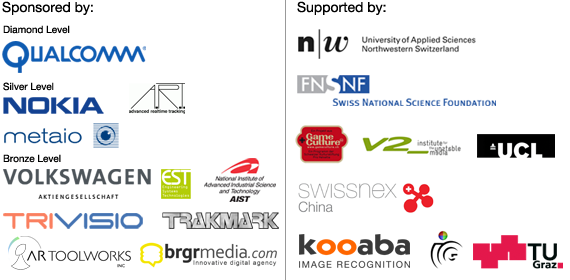Shift – Festival of Electronic Arts Theme 2011
 OCTOBER 27 - 30, 2011
OCTOBER 27 - 30, 2011
Of Birds And Wires
Electrified Voices
The voice is the primary medium of language, the most immediate instrument, a physical point of reference, and a means of conveying information. The sensual presence of a voice merges with its message. When we hear a voice, we perceive it as an individual presence, as the original articulation of a specific personality – even though voices have been formed and trained to express the zeitgeist since time immemorial or, in more recent times, have been recorded and modified by technical means.
Two inventions radically altered our relationship to the human voice 130 years ago: technical recording on the phonograph froze time while telephonic transmission – phones, in a word – dissolved space. In the 1920s, refinements in microphone technology gave birth to a new type of singer, the crooner. Thanks to amplifiers, a crooner could make his softly sung songs heard above the sound of the band, even in larger venues and with relatively little vocal training.
The amplified voice began to play an important role also in politics at this time, for mass rallies could be addressed without any aesthetic change in vocal quality, without the voice becoming a yell. This considerably broadened the scope of mass communication and packed a more emotional punch – especially when it penetrated private living space in the form of radio waves. Yet, in contrast to the “public ear” at a rally, listeners at home were unable to answer back directly.
Developments in the fields of science, the economy, politics, Pop and art are interlinked – for proof of that one need look no further than the history of technically modified voices. One of its showcase inventions is the Vocoder, development of which can be dated to around 1940, somewhere between military encryption techniques and Big Band gimmicks. In the context of 1970s Pop, the Vocoder gained a new lease of life and no little fame generating the futuristic, gender-neutral voices of hybrid human-machines.
Today, we can hardly begin to imagine a world in which the storage, reproduction, technical modification and broadcast of the voice have no role to play. Auto-Tune, a tone level modulator plug- in, is now used to sugarcoat the voices of starlets and robotized rappers – on roughly 90 per cent of all pop songs! Ultimately synthetic voices will become barely distinguishable from those of human call centre agents. What will happen, when we can no longer clearly distinguish between a human voice and the voice of a machine? Can we tell the difference between a real and an artificially generated effect? How have technological advances in digital and networked cultures altered our perception and our image of the voice?
The Shift Festival 2011 turns the spotlight on musical and artistic experiments with electrified voices, and intends to explore the questions about the body, society and language to which such voices give rise.
SHIFT — ELECTRONIC ARTS FESTIVAL
This e-mail address is being protected from spambots. You need JavaScript enabled to view it.
WWW.SHIFTFESTIVAL.CH
TEL +41 (0)61 331 58 40
FAX +41 (0)61 331 58 42
P.O. BOX CH-4023 BASEL









